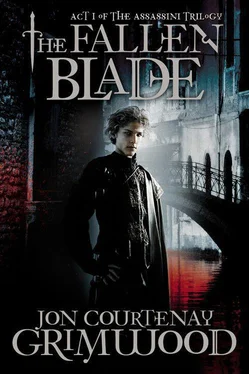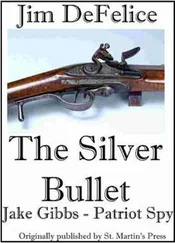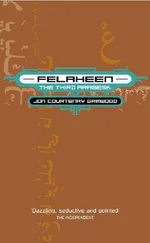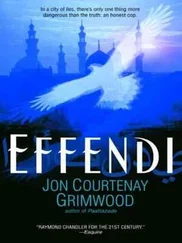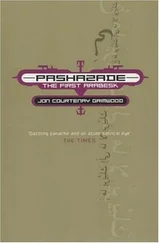Jon Grimwood - The fallen blade
Здесь есть возможность читать онлайн «Jon Grimwood - The fallen blade» весь текст электронной книги совершенно бесплатно (целиком полную версию без сокращений). В некоторых случаях можно слушать аудио, скачать через торрент в формате fb2 и присутствует краткое содержание. Жанр: Фэнтези, на английском языке. Описание произведения, (предисловие) а так же отзывы посетителей доступны на портале библиотеки ЛибКат.
- Название:The fallen blade
- Автор:
- Жанр:
- Год:неизвестен
- ISBN:нет данных
- Рейтинг книги:4 / 5. Голосов: 1
-
Избранное:Добавить в избранное
- Отзывы:
-
Ваша оценка:
- 80
- 1
- 2
- 3
- 4
- 5
The fallen blade: краткое содержание, описание и аннотация
Предлагаем к чтению аннотацию, описание, краткое содержание или предисловие (зависит от того, что написал сам автор книги «The fallen blade»). Если вы не нашли необходимую информацию о книге — напишите в комментариях, мы постараемся отыскать её.
The fallen blade — читать онлайн бесплатно полную книгу (весь текст) целиком
Ниже представлен текст книги, разбитый по страницам. Система сохранения места последней прочитанной страницы, позволяет с удобством читать онлайн бесплатно книгу «The fallen blade», без необходимости каждый раз заново искать на чём Вы остановились. Поставьте закладку, и сможете в любой момент перейти на страницу, на которой закончили чтение.
Интервал:
Закладка:
So do we, Roderigo thought. Half the men working cranes outside were indentured to Schiavoni gang masters. The peasants on the mainland were bound to their lords. Did Iacopo think the whore on his arm worked freely? Taking a gulp from his glass, Roderigo winced at its bitterness.
Halfway down the jug, Roderigo realised why the wine was so bad.
If his mind had not been on last night's disaster he would have realised men came here with other things on their mind. To share taverns was a Serenissiman tradition. The rules governing brothels were more complicated. In being here he was breaking half a dozen laws.
"I should leave…"
"You sent my whore to check on your sergeant."
So he had, Roderigo remembered.
Taking his hand from between her thighs, Iacopo patted the remaining whore's knees. Her shrug making it clear that losing his attention meant little.
What am I doing here? Roderigo knew the answer the moment the question entered his head. He was behaving as any Venetian noble would when invited by the victor of the previous day's race to have a drink.
"My lord. You look as if the wine doesn't agree with you."
"It doesn't," he said flatly.
When Iacopo returned it was with a different flask. "Frankish," he promised. "The best they have. I'm sorry, I should have realised."
"Realised what?"
"That a nobleman would not have the stomach for the wine we drink. It was thoughtless of me."
Feeling shamed, Roderigo said, "It's not your wine. Yesterday's news about Lady Desdaio has unsettled me…" Toasting Iacopo, he discovering the man was right: this wine was better. Raising his head from the table, Roderigo watched a serving girl approach. Did she work the stalls? He decided he didn't care. She'd come to his bed right enough. He was a patrician with a palace on the Grand Canal.
A small one, admittedly. A thin, three-storey building between two fat ones. But still a palace and still overlooking the Canalasso, that watery road Venice chose for its heart. There were times he didn't like himself and this was one of them.
Last night had begun well enough, only turning sour when Temujin took an arrow. Turning sourer still with his discovery of that boy.
Who knew where he was now?
Drowned, with luck…
Early morning sun crinkled on the lagoon and the tide flowed as sluggishly as molten lead. Somehow, without Roderigo noticing, the room had emptied and his companion was gone.
"Iacopo?"
"A girl is murdered. Iaco went to look."
In a city where passers-by stepped over bodies most mornings this sounded passing strange. "What makes this killing different?"
"The murderer. A boy was seen nearby. Naked, with silver-grey hair. The Watch believe he was her attacker."
10
Tycho woke with his bladder full, his penis hard and his balls so tight they ached. And when he pissed against a wall his urine was so rank it shocked him into wondering if the stink was something else.
Until he realised everything smelt extreme.
The smoke from fires banked low for the night, the smell of pies and casseroles baking in the public ovens that dotted every other street. This new world was a mix of opulence and filth. And people, thousands of strangely dressed people, living their lives to rules denied him.
Here the horizon was flat, when it could be seen beyond the mist. Because there was always mist. So these might be the last islands in the world. Or the only islands in the world. Or perhaps all the world there was.
The roof above him leaked, and half of the warehouse where he slept was full of rubbish. The other half was piled with drying wood. A side canal, which once served its landing stage, was silted and stale. A bridge across its mouth, blocking entry, was old, the decaying warehouse older.
On the fourth night after Tycho found this hiding place-the sixth night of the city's rioting, and the first of the snows-he headed south, driven across the roofs by hunger, and a realisation he needed more than one bolt hole in this city.
He learnt to use the shadows, his breath never disturbing falling snow. Men, youths and older boys let him pass unseen. He was the dagger over their heads and the silence above. Girls, cats and old women were less easy, but everyone knew they saw things anyway.
The Nicoletti were at war with the Castellani.
If the ship-workers had guild pride, the Nicoletti prided themselves on being from San Nicolo dei Mendicoli, the toughest parish in the city. No one really knew what had started their hatred, but the street battles it spawned had simmered for four hundred years. And the dukes, while not actively approving, did not disapprove. Should parishes one side of the Canalasso rise, parishes the other side could be relied on to crush them.
The cause of tonight's fight was real, for once.
The red-clad Castellani accused the Nicoletti of the slaughter of Maria, a cordwainer's wife. The black-clad Nicoletti accused their enemy of trying to extract blood money they couldn't afford and didn't owe.
And so, at midnight, with snow falling so fast rioters lost sight of the canal edges, the battle resumed. At midnight, because that was tradition. And it began, as tradition also demanded, with the previous night's champions meeting on a bridge, scraping away snow to reveal footprints carved into the bridge's floor, and tossing a coin to chose who threw the first punch.
In the hour before midnight, while those preparing to fight were finding their courage in alcohol, and refuelling their anger with tales of how virtuous Maria had been, or how wicked it was to demand blood money falsely, Tycho reached a chimney on the roof of the Fontego dei Tedeschi north of the Rialto bridge. For company he had a dead pigeon and a live cat, the pigeon having died to keep the cat alive for another few days.
Around him were a dozen chimneys, twice his height, and topped by fluted stone funnels from which warmth drifted. He'd been drawn here by a noise he'd heard on his first night in the city. A mechanical heartbeat.
Unthreatening but steady, it drew him to the far edge of the fontego roof, on to icy tiles two floors below and into an alley where frozen mud cut his feet through a covering of snow. The heartbeat was loud as it echoed off the alley walls. Opening a door without thinking, he stepped through. The machine shop was in darkness, except for a candle in the far corner. A question came from behind the candle.
The voice of the man asking was proud and old. He sounded not at all worried by the arrival of a stranger, where no stranger should be. Tycho knew later what he asked, regretting how he came to know.
"My machine prints."
The book master had the belly of a man who ate well and walked little. His cheeks flapped, as if he'd once been larger, and his eyes were pale and watery. His hair was thick, though, for all it was grey.
"The only printing press in Serenissima."
Tycho looked at him.
"You don't understand?"
He didn't. Although he would reconstruct the conversation in flashes and slivers, as he fled the building. But that came later.
"The Chinese invented this. I changed it to harness water power." The man indicated a moving belt that vanished through a slit in the floor and reappeared a pace later. It turned a wheel, which worked gears that shuttled sheets of paper under a falling square. This was what Tycho had heard outside.
"The future. That's what this is. We can print fifty pages of Asia Minor as the tide rises, change the plate and print fifty copies of China as it falls."
There was pride in his voice. A pride Tycho was to understand later, when the old man had no further use for it. Having explained what it was in Venetian, and seen how hard Tycho struggled to understand, the old man tried mainland Italian, German, Greek and Latin. Finally he shrugged and reverted to his original choice.
Читать дальшеИнтервал:
Закладка:
Похожие книги на «The fallen blade»
Представляем Вашему вниманию похожие книги на «The fallen blade» списком для выбора. Мы отобрали схожую по названию и смыслу литературу в надежде предоставить читателям больше вариантов отыскать новые, интересные, ещё непрочитанные произведения.
Обсуждение, отзывы о книге «The fallen blade» и просто собственные мнения читателей. Оставьте ваши комментарии, напишите, что Вы думаете о произведении, его смысле или главных героях. Укажите что конкретно понравилось, а что нет, и почему Вы так считаете.
